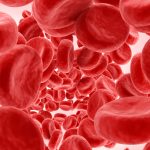Node Smith, ND
Vitamin D for IBS
A recent study from the University of Sheffield, supports vitamin D supplementation to help relieve the symptoms associated with Irritable Bowel Syndrome (IBS).1 IBS is a common presenting condition which can have symptoms of diarrhea, constipation, abdominal pain, gas and bloating, and general gastrointestinal discomfort. It is a diagnosis of exclusion, which means that the conventional medical paradigm really doesn’t know what it is or what causes it – hence being called a “syndrome.” There is currently no “cure” for IBS.
Holistically Speaking, IBS is Considered a Functional Disorder
From a holistic perspective, IBS is considered a functional disorder. There is something that is clearly problematic – there is dysfunction – however, there isn’t exactly one thing that can be pinpointed. When considering functional disorders it is often extremely helpful to look at different nutritional factors that are needed for proper function to occur. Vitamin D has a variety of different metabolic action, and it is not surprising that it has been seen to aid in alleviation of IBS symptoms.
A Meta-analysis on Vitamin D and IBS
The specific study, published in the European Journal of Clinical Nutrition,looked at multiple other research studies on vitamin D and IBS – a meta-analysis. The findings showed that vitamin D deficiency was higher in patients suffering from IBS, regardless of other factors such as age, sex or ethnicity. They also found that vitamin D eased many of the symptoms of IBS, such as abdominal pain, gas/bloating, diarrhea and constipation.
Low Levels of Vitamin D Linked to Other Diseases and Disorders
Other research studies have linked low vitamin D status to a host of other disease states and disorders. Since vitamin D synthesis in the body occurs in the skin from UVB exposure by the sun, it is very common for individuals living in higher latitudes, or spending more and more time indoors to have lower vitamin D levels, and it is a common thing to supplement. There are many theories on how much vitamin D is safe to supplement with, and this is a question that is most appropriately (and responsibly) answered by first knowing current vitamin D status. Vitamin D levels can be checked through a simple blood test that can be added on to any routine blood work being conducted; its relatively inexpensive. Once levels are known, then the amount that’s safe to supplement can be assessed.
Source:
- Williams CE, Williams EA, Corfe BM. Vitamin D status in irritable bowel syndrome and the impact of supplementation on symptoms: what do we know and what do we need to know?. Eur J Clin Nutr. 2018.
Image Copyright: <a href=’https://www.123rf.com/profile_ivannag82′>ivannag82 / 123RF Stock Photo</a>
 Node Smith, ND, is a naturopathic physician in Portland, OR and associate editor for NDNR. He has been instrumental in maintaining a firm connection to the philosophy and heritage of naturopathic medicine among the next generation of docs. He helped found the first multi-generational experiential retreat, which brings elders, alumni, and students together for a weekend camp-out where naturopathic medicine and medical philosophy are experienced in nature. Four years ago he helped found the non-profit, Association for Naturopathic ReVitalization (ANR), for which he serves as the board chairman. ANR has a mission to inspire health practitioners to embody the naturopathic principles through experiential education. Node also has a firm belief that the next era of naturopathic medicine will see a resurgence of in-patient facilities which use fasting, earthing, hydrotherapy and homeopathy to bring people back from chronic diseases of modern living; he is involved in numerous conversations and projects to bring about this vision.
Node Smith, ND, is a naturopathic physician in Portland, OR and associate editor for NDNR. He has been instrumental in maintaining a firm connection to the philosophy and heritage of naturopathic medicine among the next generation of docs. He helped found the first multi-generational experiential retreat, which brings elders, alumni, and students together for a weekend camp-out where naturopathic medicine and medical philosophy are experienced in nature. Four years ago he helped found the non-profit, Association for Naturopathic ReVitalization (ANR), for which he serves as the board chairman. ANR has a mission to inspire health practitioners to embody the naturopathic principles through experiential education. Node also has a firm belief that the next era of naturopathic medicine will see a resurgence of in-patient facilities which use fasting, earthing, hydrotherapy and homeopathy to bring people back from chronic diseases of modern living; he is involved in numerous conversations and projects to bring about this vision.

















